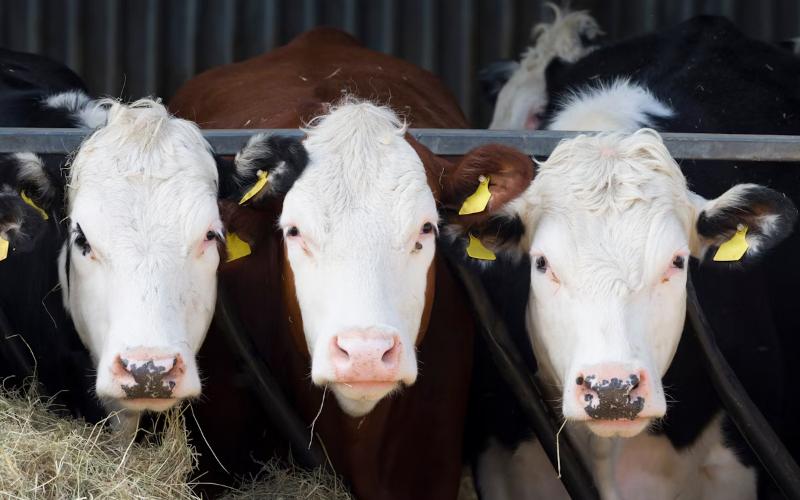Biogenetic Advancements in Dairy Impact Beef Supply and Prices

The introduction of biogenetic engineering techniques such as genomic selection and sexed semen in the dairy sector is leading to a significant reduction in the number of cows, which in turn is affecting the beef supply chain. This change has caused ground beef prices to surge by 11% from August 2024 to August 2025.
In Canada, 97% of dairy herds rely on Artificial Insemination (AI) which has been optimized to enhance genetic traits. This has resulted in a reduction of the beef supply as fewer dairy cows are needed, and consequently, fewer calves are born.
The dairy industry's strategic use of sexed semen involves breeding the top 60% of the herd with female sexed semen for dairy replacements, while the bottom 40% is crossed with male sexed semen from high-value beef bulls. This strategy generates more valuable beef-cross calves, which sell for over $2,000, significantly more than pure dairy bull calves.
Genomics plays a crucial role by providing genetic potential analysis at birth, which accelerates genetic improvements by four years compared to older methods. This has led to a 3% annual efficiency increase in herds, with Canada producing 23% more milk than a decade ago with 19,000 fewer cattle.
The reduction in cow numbers is directly contributing to a beef supply shortage. Historically, dairy farms supplied up to 20% of the beef sector's raw material through culled cows and male calves. The combination of this supply reduction and the decline in pure beef cattle numbers due to climate change has resulted in record-high beef prices.
The high capital cost of new dairy housing in Canada, estimated at $18,000 per head, further incentivizes producers to focus on genomic technologies over expanding housing, reinforcing the current supply constraints.










